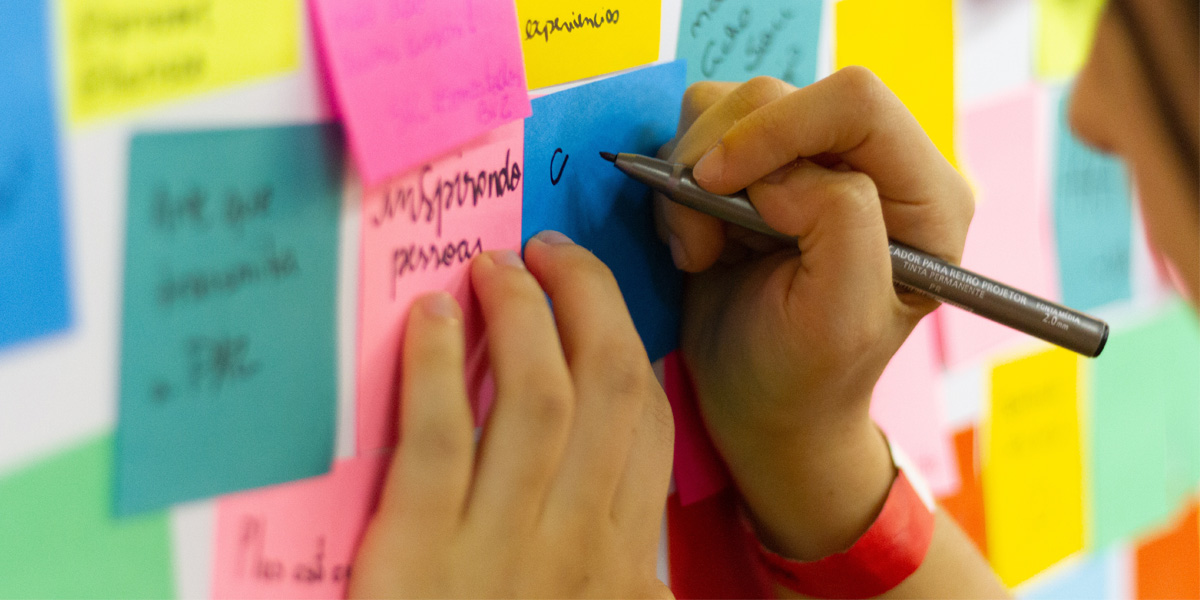Study Abroad

In my time at St. Olaf, I have been fortunate to have the opportunity to travel on a number of international study abroad programs:
- Developed and led Business 260: Innovation in New Zealand (January 2017, 2019, scheduled 2024)
- Field Supervisor for Environmental Sciences in Australia/New Zealand (Feb – May, 2018)
- Field Supervisor for Global Semester (Sept – Feb, 2011-2012)
All of these experiences enrich my teaching by providing me with multiple international and cultural experiences to draw upon. International education, in turn, has promoted my research interest into how students might use and develop entrepreneurial skills to enhance study abroad and internship experiences. Reflective practices are crucial for learning and they are especially important in the experiential learning environment (Perry, 2012) such as internships and study abroad. Through our CURI project literature review (Kubberod, 2017; Yamazaka, 2004; Neck et al., 2014), surveying study abroad participants, and personal observation, we found that entrepreneurial thinking complements reflective thinking. That is, entrepreneurial thinking is the next step to reflection on off-campus study programs. This section will explore the role of the experiential learning process in study abroad and discuss the theories, and best practices associated with enhancing the students’ development of cultural competencies.
Study abroad as experiential learning
Not all study abroad and off-campus study programs can be defined as experiential learning. Experiential learning needs to include high-impact practices, and those need to be intentional (Lutterman-Aguilar, 2015). Experiential education involves “carefully chosen experiences supported by reflection, critical analysis, and synthesis” which are “structured to require the learner to take initiative, make decisions, and be accountable for the results” (Itin, 1999).
“The hope of for all the classes on campus to be like those off-campus. We will have better involvement of students and greater education for both students and educators” – Lisa Jasinski, PhD.
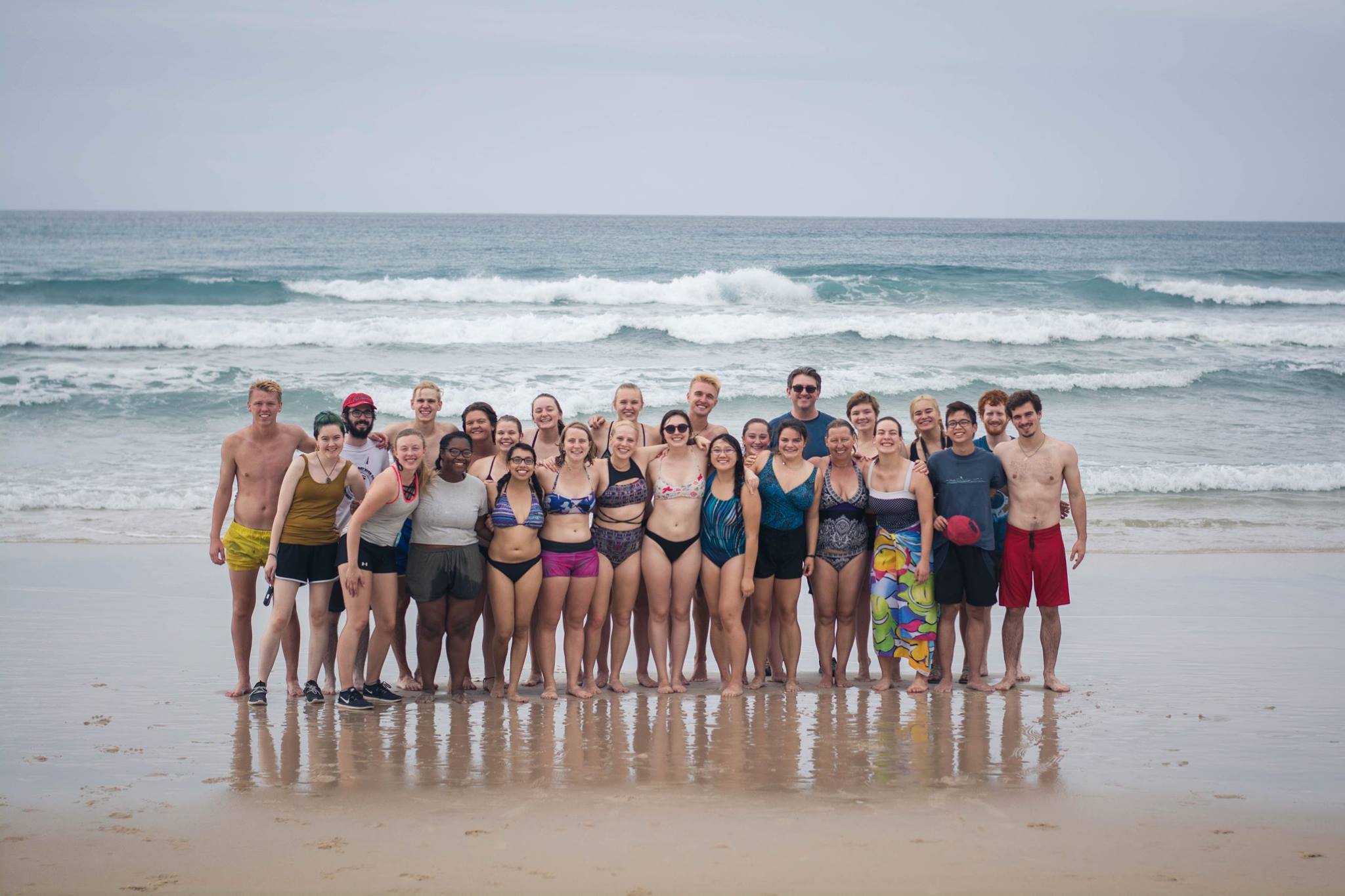
Study abroad inherently builds entrepreneurial skills
The 2018 CURI results confirmed that students acquire entrepreneurial skills during their study abroad.
Entrepreneurial education includes the development of knowledge, skills, and attitudes to new value creation. Existing literature reveals that intentional reflection is essential for effective learning in both entrepreneurial education and international/off-campus study (IOS) programs.
This research examined the importance of reflective practices as a tool to facilitate learning in IOS programs and the potential for IOS programs to develop entrepreneurial skills in participating students. Data gathered from a survey of faculty and students indicated that reflective practices before and after an IOS program are of lower quality and lesser frequency than during a program.
The findings also supported that students develop entrepreneurial skills as a result of participation in an IOS program. Emphasis on entrepreneurial education in IOS programs was recommended to further assist students in their ability to creatively solve problems as globally aware citizens of the world.
The literature review indicated that reflection is pivotal in facilitating learning in both entrepreneurial education and IOS programs. Best reflective practices include reflection before, during, and after an IOS program. Reflections should take the form of individual reflection time, group reflective conversations, and one-on-one conversations between faculty and students.
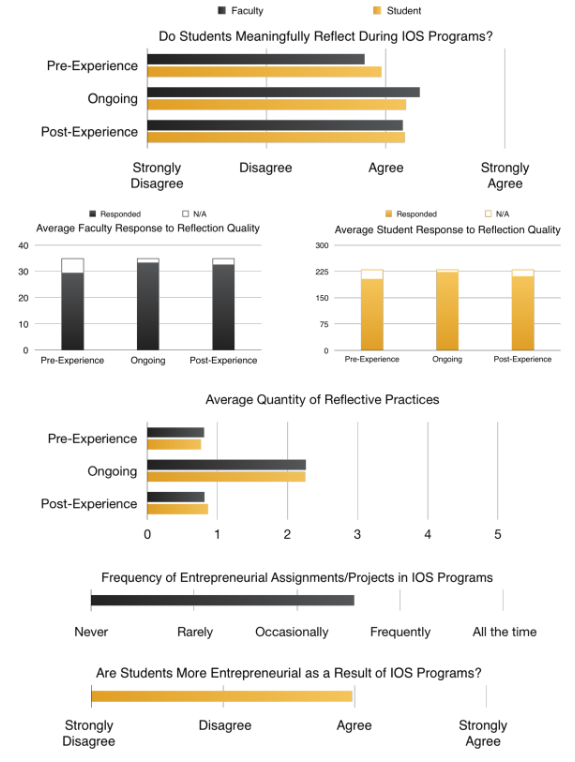
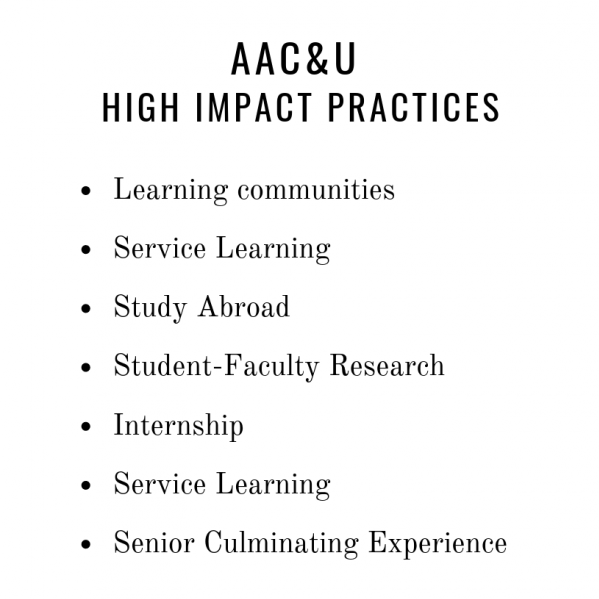
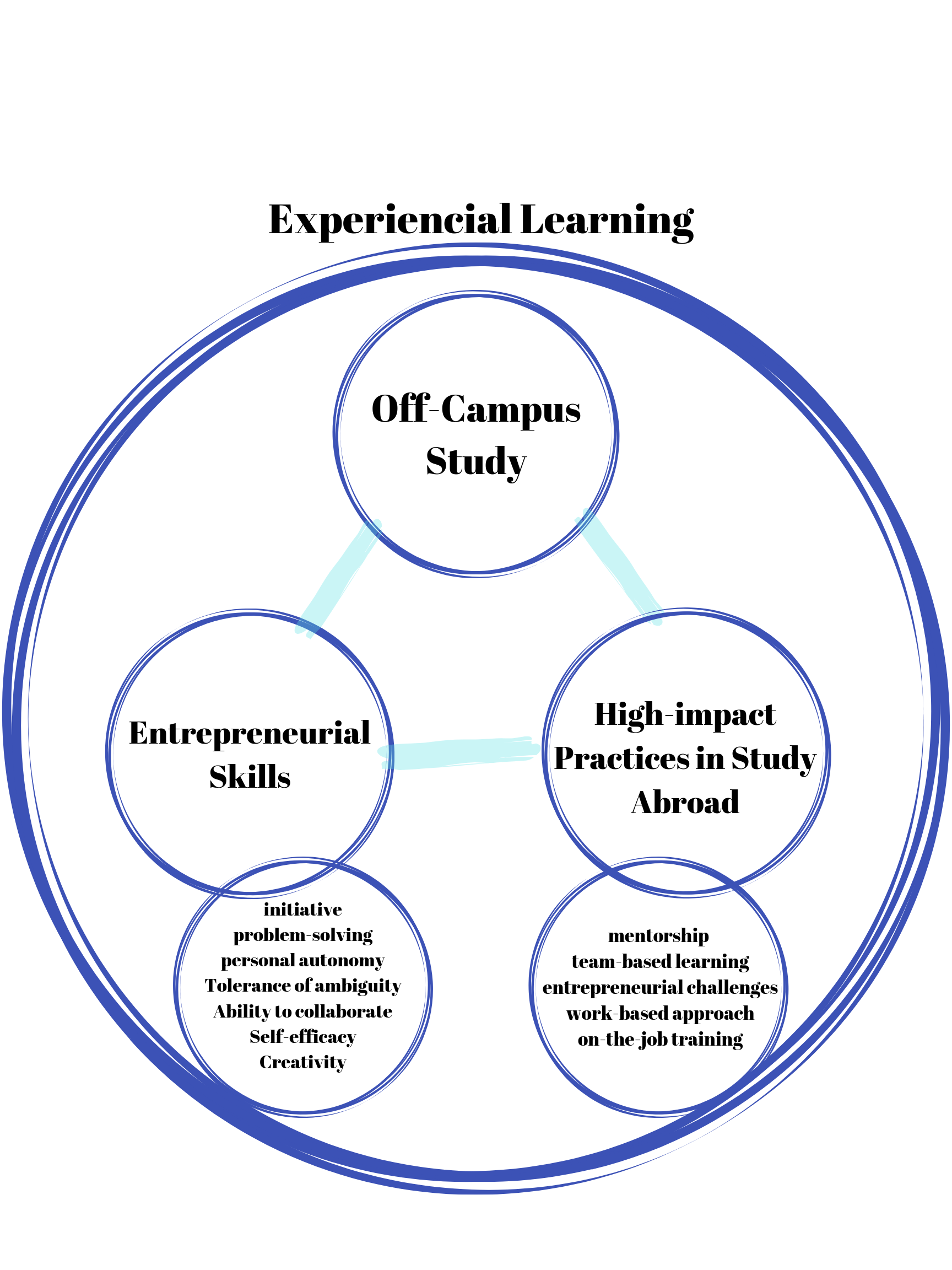
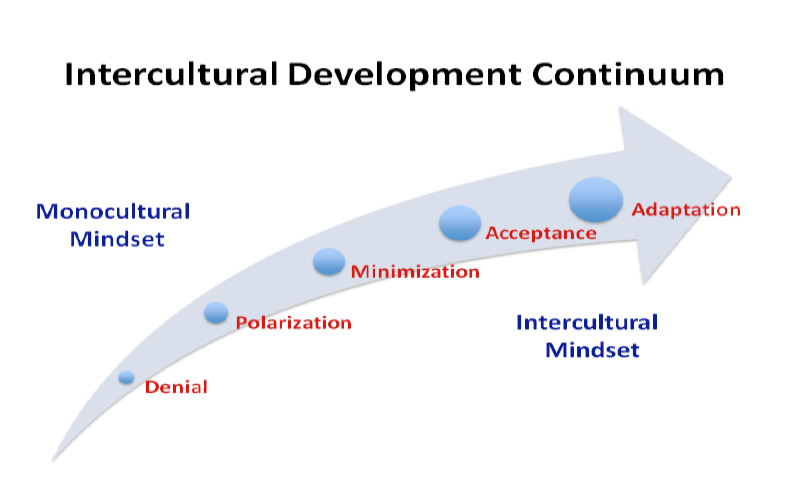
Intercultural Development in Off-Campus Study
Intercultural competence is the capability to shift perspective and adapt behavior to cultural differences and commonality (IDI, LLC). It reflects the degree to which cultural differences and commonalities in values, expectations, and beliefs are effectively bridged, an inclusive environment is achieved, and specific differences that exist in your organization or institutions are addressed from a “mutual adaptation” perspective (IDI, 2019).
Andrea Paras et al. analysed the program factors that contribute to intercultural competence development in short-term study abroad. They developed a multi-institutional study that included six programs by using a mixed-methods approach, combining close qualitative analysis of student writing.
They found two major factors that contributed to a positive impact on intercultural competence. The first fator was significant pre-departure training that provided students with skills for responding to cultural difference. The second factor included major service learning, where students seemed to have more opportunities for meaningful intercultural experiences, insights and reflection. A third factor, which was not predicted in the initial hypothesis, was that intra-group dynamics had an impact on intercultural growth, sometimes positive and sometimes negative.
The Role of Pre-Departure Intercultural Training
Pre-departure intercultural activities help students gain a better understanding of their own cultural self-identities. Pushing them to question their identities can result in an initial confusion but in the long term, it can bring intercultural learning. The main positive outcome of the pre-departure training was the preparedness for uncomfortable situations. Students were able to moderate their emotional response to the situations, as well as engage in a process of reflection about the possible causes of their discomfort (Paras et al. 2019). Besides some criticism from a few students, many found the pre-departure reflections a very helpful part of the process.
The Role of Service-Learning
The analysis of the study suggested that participation in service-learning was beneficial for students’ intercultural development. The main reason for this can be the daily intercultural interactions that students were involved in through the service-learning activities. The abilities to adapt to different ways of communication were noted in students’ reflections. In addition, the service-learning component provided opportunities for students to directly observe other invisible dimensions of culture (p. 36). The authors concluded that service-learning programs provide particularly rich opportunities for intercultural learning, and should be supported with as much intercultural training as possible.
The Role of Intra-Group Dynamics
It appeared from the qualitative analysis of the study that intra-group dynamics appeared to have a significant impact on student learning. In the case where student felt comfortable and trusted each other, the intercultural development would be more positive. In the case of negative experience within the group, students may still have a positive impact on their individual intercultural competence. This can only happen, however, if the student is able to identify and respond appropriately to the cultural differences. This relates not only to the cultural differences between students and host country but also among the group of students traveling together.

